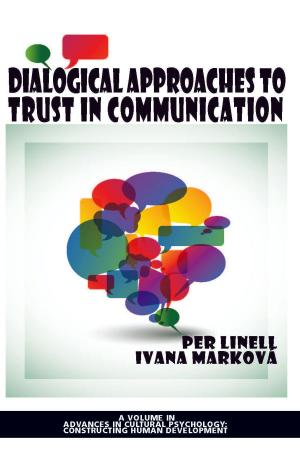Particulars and Universals in Clinical and Developmental Psychology
Critical Reflections A book honoring Roger Bibace
Nonfiction, Health & Well Being, Psychology, Developmental Psychology, Clinical Psychology, Social Psychology| Author: | ISBN: | 9781681233611 | |
| Publisher: | Information Age Publishing | Publication: | December 1, 2015 |
| Imprint: | Information Age Publishing | Language: | English |
| Author: | |
| ISBN: | 9781681233611 |
| Publisher: | Information Age Publishing |
| Publication: | December 1, 2015 |
| Imprint: | Information Age Publishing |
| Language: | English |
What sparks a psychologist’s interest in a certain phenomenon? Is it a symptom, a syndrome, a treatment, the usual, the exceptional, the group, the individual? An epistemologist, for example, focuses on the group and delivers group results. The clinician has to focus on the patient, although the patient may be perceived as one of a group (e.g., all patients with the same disease). The patient usually focuses on the clinician, but can take other opinions into account; especially, when the clinician is not considered to be the only authority. These dynamics observable in therapy as well as in research are critically reflected in this book, not only highlighting differences, but also commonalities individuals share: They all filter information and concentrate on certain aspects according to their socialization. They all have different expectations and can, yet, all deal with the same objective. Communication and building relationships seem to be vital this book aims to support this quest by moving from the universal to the particular.
What sparks a psychologist’s interest in a certain phenomenon? Is it a symptom, a syndrome, a treatment, the usual, the exceptional, the group, the individual? An epistemologist, for example, focuses on the group and delivers group results. The clinician has to focus on the patient, although the patient may be perceived as one of a group (e.g., all patients with the same disease). The patient usually focuses on the clinician, but can take other opinions into account; especially, when the clinician is not considered to be the only authority. These dynamics observable in therapy as well as in research are critically reflected in this book, not only highlighting differences, but also commonalities individuals share: They all filter information and concentrate on certain aspects according to their socialization. They all have different expectations and can, yet, all deal with the same objective. Communication and building relationships seem to be vital this book aims to support this quest by moving from the universal to the particular.















